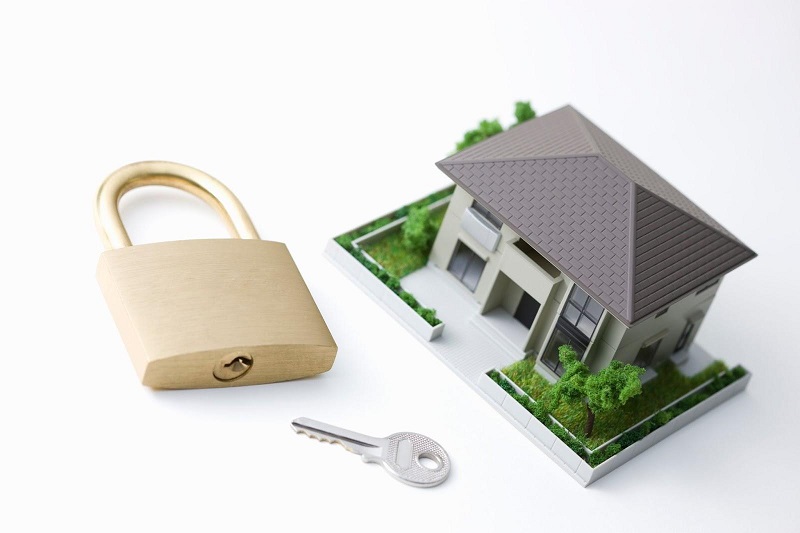Looking back, was there a moment in your life when you tried to unlock your front door, but the key just would not turn? Hmmm, time passes, and it’s possible that frequent impacts – you know, when you were rushing or probably had a fight with your boyfriend? And these have caused dents or cracks in the lock on your door. Heck, even a sticky, squeaky lock that is getting difficult to use can indicate that a new one is needed.
Indeed, locks serve as the primary barrier to the safety of your house. However, they are not permanent. The combination of daily use, exposure to the elements, and plain old age means locks break down over time and need replacing eventually, kinda like how you have to get new tyres for your car after enough wear and tear.
An outdated or damaged lock is an open invitation for bad actors looking to get into your home. And that’s the last thing you want putting your family and belongings at risk, right? Recognising the red flags that your lock is on its last legs is crucial for keeping your castle secure.
This article will walk you through all the signs to watch out for, which means it’s lock replacement time. We’ll cover things like visible damage, age and functionality issues, moving situations where you need new locks and security upgrade needs. You’ll learn about different modern lock types and options, too.
The bottom line is, locks are one of those unglamorous household things people don’t think about until there’s a problem. But being proactive about lock maintenance and replacement can save you major headaches and costs down the line. So let’s dive in and make sure your home’s lock situation is secured up tight!
- Visible Damage or Wear and Tear
Let’s start with the obvious signs a lock needs replacing – visible damage and wear. I mean, if you can actually see the lock is cracked, broken, or beat up, that’s a huge red flag it’s not working properly. Rust or corrosion eating away at the metal is another dead giveaway.
But sometimes the damage isn’t as apparent. Have you noticed the lock getting sticky and sticking whenever you try to turn the key? Or that the entire lock seems misaligned in the door frame? Those are subtle hints that something’s gone wonky, and it’s time for a replacement.
- Lock Age and Functionality
Even if your lock looks fine on the surface, age and daily use can make older locks start failing. Technology and lock mechanisms advance over time, too. So, that dinosaur lock you’ve had installed for 20 years may not meet modern security standards anymore.
If you find yourself having to jiggle the key more and more to get the lock to open up, it’s getting outdated. And lord knows what happens if you actually lose the only set of keys for that antique lock. Worth replacing for sure at that point!
- Moving to a New Home
Speaking of new keys, any time you move into a new place, it’s a must to get new locks. Who knows how many copies of the previous keys are floating around from former tenants or owners? Your home’s security is fresh outta the box, so the locks should be too.
Depending on the history of the property, you may even want to go full “new locks, who dis?” and get every single one replaced. It’s just not worth the risk of someone having access, ya know?
- Security Concerns
Unfortunately, some security situations make lock replacement an absolute necessity for peace of mind. Like if you’ve had any break-in attempts or incidents in the past. Those lowlifes may have found a way to compromise your locks while trying to get in.
This is also a great chance to upgrade from those basic knob locks or secure screen door locks to something more robust like a deadbolt system. Why settle for locksmithing from the Stone Age when you can beef up protection?
- Lock Types and Replacement Options
Yeah, talking about lock types, you’ve got a ton of solid options for replacements these days. Besides those classic deadbolts, there are smart keypad locks, biometric fingerprint readers, and even locks you can control and monitor from your phone. The future is pretty cool!
But maybe you don’t need a full replacement everywhere. Some situations just call for rekeying – changing out the internal cylinder so your current locks accept a new set of keys. Cheaper than total replacement but still increases security.
Let’s bring it all home – when does a lock actually need to be replaced?
All along, the signs were, like, just in front of us and we never dared notice them. Cracks, dents, or rust are examples of visible damage that clearly indicates a problem. However, some locks simply grown too old, it may be weakening on the inside, even though it seems brand-new.
The security of your house is a serious matter. It is the stronghold guarding your life, your loved ones, your pets, and your treasured possessions! Having locks, you can trust to actually keep out the bad guys means everything. Flimsy hardware that’s one swing of the credit card away from opening just doesn’t cut it.
So don’t get caught slippin’ with old, unreliable locks. At the first hint of damage or issues, contact AllCoast Locksmiths to help secure your palace right. It’s such a simple step towards complete homeowner peace of mind. Protect your castle and rest easy knowing your locks are student-body-endorsed!


